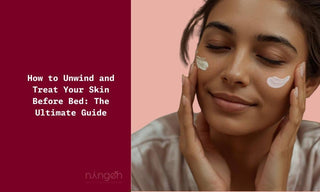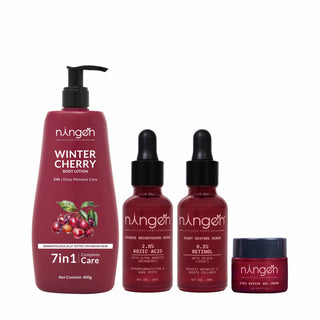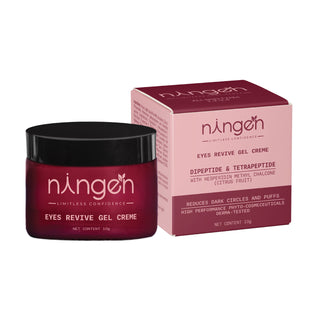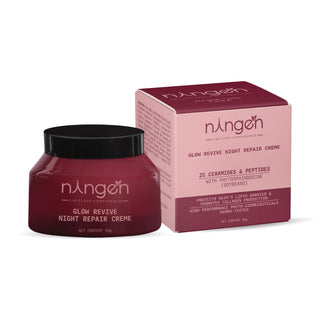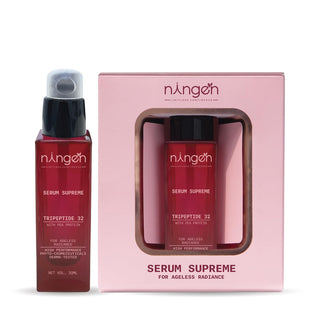TLDR;
Discover how to unwind and treat your skin before bed with this comprehensive guide, which combines proven relaxation techniques with advanced skincare treatments. Learn the optimal evening routine sequence, master stress-reduction methods, and unlock your skin's natural overnight repair potential. From digital detox strategies to professional-grade skincare application, create a bedtime ritual that delivers both mental peace and radiant morning skin.
Learning how to unwind and treat your skin before bed is the secret to waking up refreshed and glowing. While you sleep, your skin enters its most active repair phase—making bedtime the perfect opportunity to combine stress relief with powerful skincare treatments.
The science is clear: your skin repairs itself 3x faster at night, and the simple act of caring for yourself before bed dramatically improves both sleep quality and skin health. This ultimate guide transforms your necessary evening tasks into a restorative ritual you'll actually look forward to.
Ready to master how to unwind and treat your skin before bed? Let's create your perfect bedtime sanctuary.
In This Guide;
Why Unwinding Before Bed Is Essential for Skin Health?
How to Properly Unwind - The Digital Detox Foundation
Advanced Strategies: Maximizing Your Evening Routine
Skincare Recommendations by Skin Type and Concerns
Common Mistakes That Sabotage Your Routine
15-Minute Nighttime Skincare Routine (For Exhausted Nights)
Why Unwinding Before Bed Is Essential for Skin Health?
Your skin operates on a circadian rhythm, making evening the optimal time for both relaxation and treatment. Between 11 PM and midnight, your skin's permeability increases by 25%, making products more effective. Meanwhile, cellular regeneration peaks between 1-3 AM when growth hormone production surges.
Here's the connection most people miss. Stress hormones like cortisol directly sabotage your skin's repair process. When you're wound up at bedtime, elevated cortisol blocks growth hormone release and increases inflammation, essentially canceling out your expensive skincare products.
The solution? Learning how to unwind and treat your skin before bed creates a powerful synergy where relaxation enhances skincare effectiveness, and skincare rituals promote deeper relaxation.
What Happens When You Skip the Unwind Phase?
Skipping the unwind phase may seem harmless, but it has a direct impact on your skin and overall health:
-
Products absorb poorly due to stress-induced vasoconstriction
-
Sleep quality suffers, reducing overnight skin repair
-
Cortisol remains elevated, promoting inflammation and breakouts
-
You miss the psychological benefits of self-care rituals
Making time to unwind isn’t just a luxury; it’s a crucial step for both healthy skin and a calmer mind.

How to Properly Unwind & Treat Your Skin Before Bed?
Step 1: - The Digital Detox Foundation
This evidence-based 10-3-2-1-0 Sleep Formula approach is revolutionizing how we prepare for bed:
-
10 hours before bed: No more caffeine (affects sleep quality up to 10 hours later)
-
3 hours before bed: Stop eating large meals (prevents blood sugar spikes)
-
2 hours before bed: Finish work-related tasks (mental wind-down begins)
-
1 hour before bed: Complete digital detox starts
-
0: Number of times you hit snooze (consistent wake times improve evening routine)
Advanced Digital Unwinding Techniques-
Create Your "Digital Sunset": Instead of abruptly stopping screen time, gradually transition your device use:
2 hours before bed: Switch to reading apps with night mode 1.5 hours before bed: Audio-only content (podcasts, audiobooks) 1 hour before bed: Complete device shutdown
Environmental Triggers for Relaxation:
-
Dim all overhead lights and switch to warm lamps
-
Start an aromatherapy diffuser with lavender or chamomile
-
Change into comfortable sleepwear to signal transition time
-
Set out skincare products to create anticipation for self-care
The Psychology of Unwinding
Replace stimulation with intention. Your brain needs clear signals that the day is ending. Create physical rituals that mark this transition:
-
Light a specific candle only during the evening routine
-
Play the same calming playlist each night
-
Practice gratitude journaling for 5 minutes
-
Do gentle stretching to release physical tension
Step 2: Treating Your Skin
Before you can effectively treat your skin, you must properly prepare it. Think of cleansing as creating a clean canvas; without this crucial step, even the most expensive treatments can't penetrate effectively.
The Double Cleanse Method:
First Cleanse - Oil-Based (90 seconds): This isn't just about removing makeup; it's your first stress-relief technique. The massage action stimulates pressure points while dissolving:
-
Makeup and sunscreen residue
-
Environmental pollutants
-
Excess sebum and dead skin cells
Second Cleanse - Water-Based (60 seconds): Choose your cleanser based on current skin needs:
-
Stressed/Sensitive: Cream cleansers with ceramides and oat extract
-
Oily/Congested: Gel cleansers with glucoside, salicylic acid, or niacinamide
-
Dry/Mature: Lotion cleansers with hyaluronic acid and peptides
The Temperature Therapy Technique
Start warm, finish cool: Begin with lukewarm water to soften skin and open pores, then finish with a 30-second cool water rinse to tighten pores and boost circulation. This contrast therapy enhances product absorption.
Step 3: Strategic Treatment Application for Maximum Effectiveness
Follow the molecular weight rule: Apply products from lightest to heaviest consistency, allowing 2-3 minutes between each layer for optimal absorption.
The Perfect Sequence:
-
Toner/Essence - Balances pH and preps skin (30-second application)
-
Treatment Serums - Active ingredients for specific concerns (gentle patting motions)
-
Eye Cream - Delicate area needs special attention (ring finger application)
-
Moisturizer - Seals in treatments and provides barrier protection
-
Face Oil - Optional final seal for extra nourishment
2025's Most Effective Evening Ingredients
Retinal (Retinaldehyde):
-
11x more potent than retinol with less irritation
-
No conversion needed - works immediately upon application
-
Perfect for beginners wanting retinoid benefits without harsh side effects
Bakuchiol:
-
Plant-based retinol alternative that's pregnancy-safe
-
Works synergistically with vitamin C and niacinamide
-
Anti-inflammatory properties make it ideal for sensitive skin
Peptide Complexes:
-
Copper peptides accelerate wound healing and collagen synthesis
-
Matrixyl 3000 specifically targets fine lines and wrinkles
-
Argireline provides gentle muscle relaxation for expression lines
Polyglutamic Acid:
-
Holds 4x more water than hyaluronic acid
-
Forms a protective film on the skin surface
-
Enhances other ingredient penetration
The 3-2-1 Treatment Rotation
3 nights per week: Anti-aging actives (retinoids, peptides, growth factors)
2 nights per week: Deep hydration focus (hyaluronic acid, ceramides, natural oils)
1 night per week: Gentle exfoliation (AHA/BHA or enzyme treatments)
1 night per week: Complete rest (basic cleanse and moisturize only)
Step 4: Relaxation Integration - Face Massage and Stress Release
Facial massage can do wonders for your skin and relaxation. The lymphatic drainage method helps reduce puffiness, improve product absorption, and ease stress by stimulating over 40 facial lymph nodes. In just 5 minutes, try upward strokes on the neck, firm pressure along the jawline, lifting motions on the cheeks, smoothing the forehead, and gentle circles around the eyes. Tools like Gua Sha boost circulation, relax muscles, support detox, and even encourage collagen production when used with light pressure at a 45° angle. For instant calm, simple acupressure works too, press between the eyebrows, massage temples, release jaw tension, and gently massage ears to trigger relaxation.
Step 5: Creating Your Sleep Sanctuary Environment
The right room conditions and relaxation rituals not only improve your sleep but also protect your skin overnight.
-
Temperature Control (65–68°F / 18–20°C): Supports natural body cooling and prevents sweating that clogs pores.
-
Humidity (40–50%): Below 30% = dryness, above 60% = breakouts. The sweet spot keeps skin hydrated and balanced.
-
Lighting: Aim for total darkness; use blackout curtains or eye masks. If needed, only red night lights to avoid circadian disruption.
-
Aromatherapy:
-
Lavender → lowers cortisol, improves deep sleep
-
Chamomile → promotes calm and sleepiness
-
Bergamot → relaxes heart rate and blood pressure
-
Sandalwood → enhances non-REM sleep
-
Safe Use: Pillow mist, diffuser (3–5 drops), or diluted topical application
A balanced sleep setup means deeper rest, healthier skin, and a calmer mind.

Perfect aromatherapy for your relaxation
Advanced Strategies: Maximizing Your Evening Routine
Skin Cycling for Optimal Results
This TikTok-famous method by dermatologist Dr. Whitney Bowe maximizes active ingredient effectiveness while preventing irritation:
Night 1: Exfoliation night (AHA/BHA treatment)
Night 2: Retinoid night (retinol, retinal, or prescription)
Night 3: Recovery night (focus on hydration and barrier repair)
Night 4: Recovery night (gentle nourishment and massage)
Why it works: Gives skin time to process each treatment while maintaining consistent active ingredient exposure.
The Inversion Method for Enhanced Circulation
5-10 minutes of gentle inversion before skincare significantly boosts facial circulation and reduces morning puffiness.
Simple Techniques:
-
Legs up the wall pose: Lie on back with legs elevated
-
Child's pose: Gentle forward fold with head below heart
-
Supported forward fold: Use pillows for comfortable positioning
Technology-Enhanced Relaxation
Binaural Beats for Deep Calm: Listen to 40Hz gamma waves for 10 minutes during skincare application. Studies show 25% improvement in sleep quality and enhanced relaxation response.
Sleep-Optimizing Apps:
-
Insight Timer: Free guided meditations specifically for bedtime
-
Calm: Sleep stories and background soundscapes
-
Headspace: Wind-down exercises and breathing techniques
Skincare Recommendations by Skin Type and Concerns
Dry and Mature Skin
Evening Focus: Barrier repair and intensive hydration
Cleanser: Ceramide-rich cream cleanser
Treatment: Peptide serum + retinal combination
Moisturizer: Overnight sleeping mask with squalane and cholesterol
Tool: Heated gua sha stone for enhanced absorption (optional)
Special Addition: Facial oil blend with natural oils
Oily and Acne-Prone Skin
Evening Focus: Oil control without over-drying
Cleanser: Salicylic acid gel cleanser (2-3 times per week maximum)
Treatment: Niacinamide serum + bakuchiol for gentle retinoid effects
Moisturizer: Lightweight gel with hyaluronic acid and zinc
Tool: Jade roller stored in refrigerator for cooling and anti-inflammatory effect
Special Addition: Weekly clay mask for deep pore cleansing
Sensitive and Reactive Skin
Evening Focus: Calming inflammation and strengthening the barrier
Cleanser: Micellar water followed by a gentle gel cleanser
Treatment: Centella asiatica serum + ceramide complex
Moisturizer: Barrier repair cream with prebiotics and allantoin
Tool: Soft silicone massage brush for gentle stimulation (optional)
Special Addition: Colloidal oatmeal masks for soothing relief
Combination Skin
Evening Focus: Zone-specific treatment approach
Cleanser: Gentle cream cleanser with balanced pH
Treatment: Multi-zone application (try all-in-one serum)
Moisturizer: Lightweight formula with adaptogenic ingredients
Tool: Dual-ended facial roller for targeted treatment
Special Addition: Weekly enzyme mask for gentle renewal

Common Mistakes That Sabotage Your Routine
Mistake #1: Rushing Through the Process
The Problem: Applying products too quickly prevents proper absorption and misses stress-relief benefits.
The Fix: Each product needs 2-3 minutes to absorb. Use this time for breathing exercises, gentle massage, or mindful awareness of product textures and scents.
Mistake #2: Over-Layering Products
The Problem: Using too many products can cause congestion, irritation, and product pilling.
The Fix: Maximum 4-5 products per evening. Focus on quality over quantity—one well-formulated serum beats three mediocre ones.
Mistake #3: Ignoring the Neck and Chest
The Problem: Your neck and décolletage age faster than your face but receive less attention.
The Fix: Extend every facial product to your neck and chest. These areas have thinner skin and fewer oil glands, making them more susceptible to aging.
Mistake #4: Inconsistent Timing
The Problem: Irregular routine timing disrupts circadian rhythms and reduces effectiveness.
The Fix: Start your routine at the same time each night (±30 minutes). This trains your body to expect and prepare for the relaxation phase.
Mistake #5: Using Dirty Tools and Bedding
The Problem: Bacteria buildup on tools and pillowcases can cause breakouts and infections.
The Fix:
-
Clean gua sha tools after each use with antibacterial soap
-
Change pillowcases every 2-3 days or daily if acne-prone
-
Wash makeup brushes weekly with gentle shampoo
15-Minute Nighttime Skincare Routine (For Exhausted Nights)
Some nights, you'll be too tired for the full routine. Having a streamlined backup prevents you from skipping self-care entirely.
The Essentials-Only Approach:
-
Micellar water cleanse - Removes day's buildup without harsh rubbing (2 minutes)
-
Multi-purpose treatment - Apply an all-in-one serum (1 minute)
-
Rich night moisturizer - One product that hydrates and repairs (1 minute)
-
Breathing exercise - 4-7-8 breathing while products absorb (3 minutes)
-
Quick pressure point massage - Focus on temples and jaw (3 minutes)
-
Gratitude practice - Three things you're grateful for today (5 minutes)
The key: Even 15 minutes of intentional self-care is infinitely better than rushing through or skipping entirely.
Troubleshooting Your Evening Routine
"My Products Aren't Absorbing Properly"
Common Causes:
-
Using too much product (most people apply 2-3x recommended amounts)
-
Not waiting between layers (products need time to penetrate)
-
Applying to damp skin when products require dry application
-
Wrong product order (heavier products blocking lighter ones)
Solutions:
-
Use pea-sized amounts for serums, dime-sized for moisturizers
-
Wait 2-3 minutes between layers - use this time for relaxation
-
Pat, don't rub - gentle patting enhances absorption
-
Check product compatibility - some ingredients cancel each other out
"I'm Breaking Out More Since Starting a Routine"
Possible Reasons:
-
Purging from new actives (normal for 4-6 weeks with retinoids/acids)
-
Over-exfoliation from too many active ingredients
-
Product sensitivity or allergic reaction
-
Dirty tools or bedding introduce bacteria
Diagnostic Steps:
-
Stop all new products and return to basic cleanse + moisturize
-
Reintroduce one product every 2 weeks to identify culprits
-
Take progress photos to distinguish purging from reactions
-
Consult a dermatologist if problems persist beyond 8 weeks
"I Fall Asleep During My Routine"
Strategic Solutions:
-
Start routine 1 hour earlier to allow for natural energy dips
-
Create a 5-minute backup routine for exhausted nights
-
Use gentle music or audiobooks to maintain relaxed alertness
-
Apply products in the bedroom instead of the bathroom to stay comfortable
-
Replace washcloths daily to prevent bacterial transfer
Creating Long-Term Success: The 30-Day Habit Formation Challenge
Establishing a structured evening skincare routine can transform not only your skin but also your overall well-being. Here’s a simple 4-week roadmap:
-
Week 1 – Foundation: Fix bedtime, follow cleanse–treat–moisturize basics, track sleep and skin comfort.
-
Week 2 – Enhancement: Add facial massage, aromatherapy, and refine product timing.
-
Week 3 – Personalization: Adjust products to your skin’s response, try gua sha or acupressure, and fine-tune routine length.
-
Week 4 – Mastery: Document what works, plan seasonal changes, and set systems for long-term consistency.
Measure Success: Look for easier sleep onset, better morning mood, lower stress, improved skin comfort, and quicker product absorption.
Stay Accountable: Use weekly selfies, sleep apps, routine tracking, and stress ratings to monitor progress.
By the end of four weeks, you’ll have a sustainable routine that nurtures healthier skin, deeper sleep, and a calmer mind.
The Takeaways
Learning how to unwind and treat your skin before bed doesn't have to be complicated or time-consuming. It's really about giving yourself permission to slow down and show up for yourself at the end of each day.
Start small tonight. Pick one relaxation technique that appeals to you and one skincare step you've been skipping. Maybe it's taking three deep breaths while your moisturizer absorbs, or finally using that gua sha tool collecting dust on your counter.
Your skin is literally rebuilding itself while you sleep, why not give it the best possible environment to work with? You deserve those few minutes of peace, and your future self will thank you for it.
Sweet dreams!
Frequently Asked Questions
Q1. How long should my complete evening routine take?
A: A thorough routine typically takes 20-30 minutes, but you can see benefits with just 10-15 minutes of focused care. The key is making it feel relaxing rather than rushed—this isn't time lost, it's time invested in your wellbeing.
Q2. Can I use retinol and vitamin C together in my evening routine?
A: It's generally better to use vitamin C in the morning and retinol at night to avoid potential irritation. If you prefer evening vitamin C, wait 30 minutes before applying retinol, and start with lower concentrations of both.
Q3. What's the difference between slugging and regular night moisturizing?
A: Slugging involves applying an occlusive layer (petroleum jelly, squalane, or facial oil) as the final step to seal in all previous products. It's more intensive than regular moisturizing and creates a protective barrier that prevents transepidermal water loss overnight.
Q4. How often should I change my pillowcase for optimal skin health?
A: Every 2-3 days minimum, or daily if you're acne-prone or use overnight hair treatments. Silk or bamboo pillowcases are gentler on both skin and hair than cotton and can be worth the investment.
Q5. Is it safe to do facial massage every night?
A: Yes, gentle facial massage is safe and beneficial nightly. However, limit intensive techniques like gua sha or facial cupping to 2-3 times per week to prevent over-stimulation or broken capillaries.
Q6. What should I do if my skin reacts badly to a new evening product?
A: Stop the product immediately and return to your basic routine (gentle cleanser and simple moisturizer). Apply cool compresses if there's irritation. If reactions persist beyond 48 hours or worsen, consult a dermatologist.
Q7. How long before I see results from a new nighttime routine?
A: You'll likely notice improved skin texture and hydration within 3-7 days. Significant changes in skin tone, fine lines, and overall health typically take 4-6 weeks of consistent use as your skin completes full renewal cycles.
Q8. Should I adjust my routine during hormonal changes or my menstrual cycle?
A: Yes, your skin's sensitivity fluctuates with hormones. During your period and the week before, focus on gentle, soothing products. Your skin typically tolerates actives best during the follicular phase (days 1-14 of your cycle).
Q9. Can meditation or relaxation techniques really improve my skin?
A: Absolutely. Chronic stress increases cortisol, which breaks down collagen and increases inflammation. Regular relaxation practices can reduce cortisol by 23-31%, directly benefiting skin health and repair processes.
Q10. What's the most important element if I can only focus on one thing?
A: Consistency with basic cleansing and moisturizing while incorporating just 5 minutes of intentional relaxation. This foundation supports both skin health and stress management—the two pillars of effective evening self-care.
References and Further Reading
Scientific Research:
-
Journal of Investigative Dermatology: "Circadian Regulation of Skin Function and Barrier Repair"
-
Sleep Medicine Reviews: "Sleep Quality Impact on Dermatological Health"
-
International Journal of Cosmetic Science: "Transepidermal Water Loss During Nocturnal Hours"
-
Psychoneuroendocrinology: "Cortisol and Skin Barrier Function Correlation"
Professional Resources:
-
American Academy of Dermatology: Evidence-based nighttime skincare protocols
-
National Sleep Foundation: Sleep hygiene guidelines for optimal health
-
International Association of Aromatherapy: Safe essential oil usage guidelines
-
Board-Certified Dermatologist Directory: Finding qualified skincare professionals
Expert Consultations:
-
Licensed esthetician networks for routine personalization
-
Sleep medicine specialists for persistent sleep quality issues
-
Mental health professionals for stress management techniques
Disclaimer: This guide provides educational information only and doesn't replace professional medical advice. Always patch test new products and consult with a dermatologist before starting new active ingredients, especially if you have sensitive skin or existing skin conditions.


